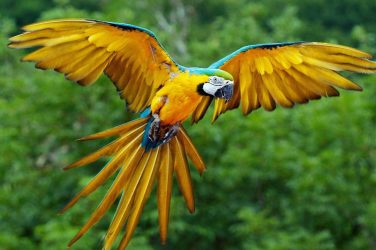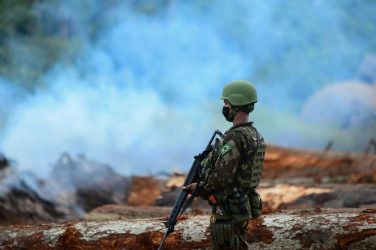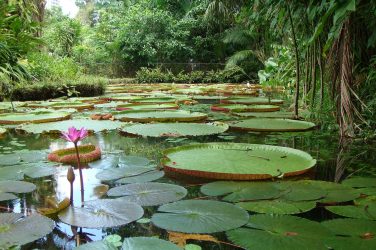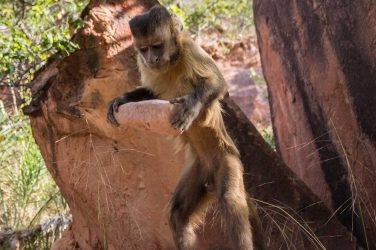With Brazil in political turmoil, the bancada ruralista agribusiness lobby that dominates Congress has quietly set in motion measures to dismember some of the country’s most important conservation units in the eastern section of the Amazon basin.
The move occurs at a time when the country is fully focused on the Supreme Court’s recently announced plans to investigate corruption allegations made against leading politicians, including eight of President Temer’s ministers.
Congressmen have introduced amendments to two key provisional measures — MP 756/2016 and MP 758/2016 — which would remove conservation protection from by 1.2 million hectares (2,965,252 acres) of forest.
Some of the affected units have received significant funding from foreign donors, including the European Union and the World Bank.
On 11 April, a Congressional commission approved an amendment to MP 756 to reduce the area of the Jamanxim Flona (National Forest) by 480,000 hectares — over a third of the unit’s current total area of 1.3 million hectares. The amendment also cut the area the Nascentes da Serra do Cachimbo Biological Reserve by half — a 180,000 hectare reduction. Both conservation units are in the state of Pará.
The dismembered tracts will have their conservation status changed so that they become Areas of Environmental Protection (APAs). Private ownership of land is permitted within an APA, as is agriculture and forest felling.
The federal deputy, José Priante, the rapporteur for MP 756, justified the measure, saying: “By making an area an APA, we are merely choosing a form of conservation that makes it possible to mediate conflicts.”
He contended that the affected areas already had farmers living within them when the land was included within the conservation units, and that the APA reclassification protected the farmers’ interests.
However, a study carried out by the Chico Mendes Institute for Conservation and Biodiversity (ICMBio), which administers federal conservation units, found that two-thirds of the farmers who had cleared forest within the Jamanxim Flona had moved into the area after it was turned into a conservation unit — meaning that they were illegally exploiting public lands.
Opposition federal deputy Nilto Tatto criticized the MP, saying that it sent a clear message that “crime pays” and that “it’s worth invading conservation units.”
While Brazil’s environmental agencies were busy gathering signatures for a protest letter against MP 756, they were hit by another blow. On the following day, in a session that lasted seven minutes, the same Congressional commission approved amendments to MP 758, whereby the National Park of Jamanxin is to lose half its area (344,000 hectares), and the Itaituba II National Forest is to lose well over a third of its protected land (169,000 hectares). The dismembered areas will be turned into APAs.
The reduction in Amazon conservation units by 1.2 million hectares in total, an area almost as large as Puerto Rico, is likely to be received with consternation by foreign funders.
Brazil’s ministry of the environment has a program called ARPA (the Amazonia Protected Areas Program), which was created to strengthen conservation units in the Amazon. Described as “the planet’s greatest program for tropical forest conservation,” its first phase has a budget of US$125.6 million, largely provided by the World Bank’s Global Environment Facility, Germany’s Development Bank (KfW) and the World Wide Fund for Nature (WWF).
Part of this funding goes to the National Park of Jamanxim and to the Nascentes da Serra do Cachimbo Biological Reserve, both of which are seeing serious losses in area.
The European Union has also provided funding for the Jamanxim and the Itaituba II National Forests through various projects, while the German Development Bank (KfW) has separately provided considerable resources for the forests.
The provisional measures (MPs) will now go for approval to the lower Chamber of Deputies and then to the Senate. Both measures must be approved by the end of May or lose validity.
Considering the strength of the agribusiness lobby, passage of the amendments seems very likely, but, with the scale of the current political crisis in Brazil, little is predictable. Many workers, including the police, are deeply unhappy with the government’s pension reforms, with mass protests happening around the country.
This article appeared originally in Mongabay – https://news.mongabay.com
Brazil moves to cut Amazon conservation units by 1.2 million hectares














